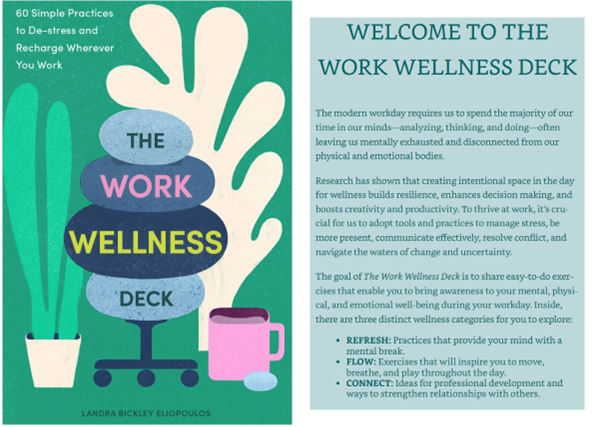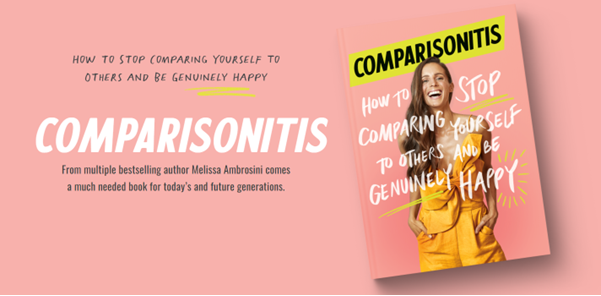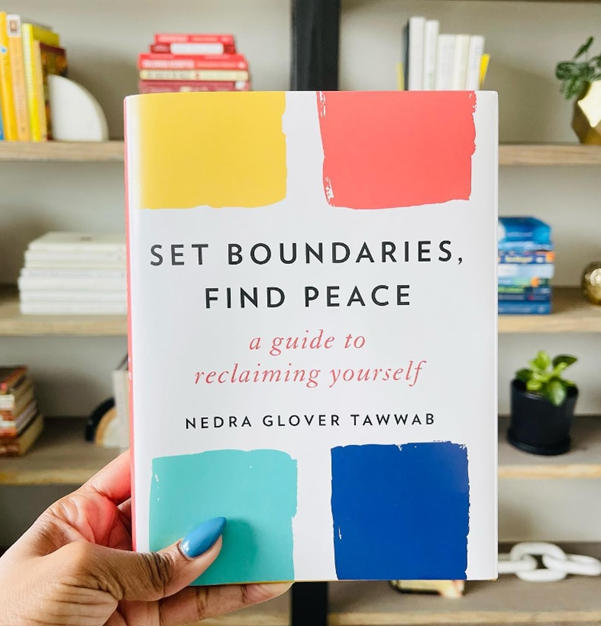Ask A Results Coach: Boosting your career without compromising your boundaries

Posted on
When it comes to our careers, it’s normal to want to feel valued and recognised. But how do you get ahead without compromising your boundaries and what you stand for?
Enter Alex Wright-Moore, a Results Coach who has kindly offered to answer HerCanberra readers’ questions—and share her knowledge with the HerCanberra audience.
Each month, Alex will explore some of the ways we can better understand what challenges us and empowers us to find solutions.
“I am good at my job, but I am always getting overlooked for promotions in favour of people who are friends with management outside of work. How can I make my bosses recognise my worth and get ahead in my career, without compromising my boundaries and what I stand for?”
For many of us, what we do is intricately linked to who we are, how we see ourselves and our perceived value in the world. What’s more, our professional wins and losses can have a deep impact on our personal lives, shaping our fears, our comfort zones, and our beliefs about what is possible.
Our experiences in the workplace not only influence our identity, self-esteem and views about what we are capable of—they also crystallise our boundaries, our sense of belonging and our ideas of fairness and equity.
It is therefore important that we master how to: (a) recognise the characteristics of a healthy work environment which enables us to succeed; and (b) learn how to foster wellbeing for ourselves in our working lives – even in times when our jobs feel challenging.
In good news, if we are contributing meaningfully at work, yet feeling unfulfilled or under-valued, there are a range of strategies and resources available to help us harness more of what we yearn for, without compromising who we are and everything we believe in. Here are a few to get us started…
We can understand that worthiness is an inside job and comparison is the enemy of fulfilment
When we face rejection of any kind, it is human to experience self-doubt. This can be common in a job setting where we have continuously strived for promotion or career advancement; only to receive an unsuccessful outcome while our counterparts excel. In this type of situation, not receiving recognition, approval or validation from our superiors and peers can be painful – especially if we feel there is a sense of injustice at play, and we are not being treated with dignity or fairness.
Over time, remaining in a job where we do not feel valued can also take its toll on our confidence and sense of purpose: eating away at our self-esteem and impacting how we see the worth of our contribution in the world – both professionally and personally. When this plays out, it is common to have thoughts such as these:
- What am I doing wrong?
- Am I really not good at my job?
- What do my colleagues have, that I don’t?
- Why am I not good enough?
- Why do I keep getting overlooked?
- What do I need to change or fix to get ahead?
- Is the system working against me?
If any of these phrases sound familiar, rest assured that thoughts like this can occur to the best of us—especially when faced with consistent setbacks or roadblocks in our career progression. However, if these thoughts begin to consume or dominate our headspace when we think about our professional lives, it is an indication that we may be too reliant upon external validation or lacking in adequate supports which encourage us to feel and perform at our best.
Bestselling author Melissa Ambrosini suggests that repeated thought patterns such as these can even be a symptom of ‘comparisonitis’ which Abrosini defines as ‘a contagious, socially transmitted condition that occurs when you compare yourself to others so frequently and fiercely that you’re left paralysed, with your confidence in tatters and your self-worth plummeting.’
“It may sound trivial,” Abrosini states, “but this affliction can have serious adverse effects on our mental health, leading to depression, anxiety, overthinking, and regret.”
So, how do we avoid the pitfalls of comparisonitis and ensure we foster wellbeing in our own working lives, no matter the circumstances? Ambrosini has written a whole book on this subject with practical tips and tools for any who feel they may be experiencing comparisonitis. Put simply, to start with, we can accept that comparison is the enemy of fulfilment and strive to focus on wellness instead.
We can also enhance our feelings of worthiness at work by taking back control of who we allow to validate our sense of self. This occurs when we consciously shift from relying upon external validation from our colleagues, family, or friends, and instead focus on how we can best internally validate our own achievements and contributions. When we engineer this change in our world, we provide ourselves with an opportunity to tap into greater meaning and purpose in our lives.
Investing in internal validation is also the key to bolstering our self-worth, confidence level and wellness at work in a reliable and ongoing fashion, regardless of what may be happening in the workplace.
This does not mean we should cease to be a collaborative team player, stop taking on board feedback from our managers or suddenly refuse to perform our core duties because we find some parts of these tasks challenging. Naturally, we have a responsibility to be professionals in our workplaces and having due respect for the systems, processes, people, and role descriptions under which we were hired are central to this.
However, what it DOES mean, is that we should encourage ourselves to:
- Take some time to consider our individual personal and professional context and define in our own terms what we are capable of at work, what ratio of time to effort is reasonable for our key tasks and what our best effort looks like in the job we are in.
- Regularly pulse check our stress and anxiety levels to determine what we can realistically deliver and if our own expectations align with the responsibilities we agreed to when we were hired (and also if our expectations align with the culture of our workplace).
- Prioritise recognising and rewarding ourselves when we feel we do a good job or reach a milestone to facilitate an innate sense of worthiness which isn’t reliant upon the actions and behaviours of others outside of our control.
- Leverage opportunities provided by employee assistance programs and annual performance reviews to have honest conversations about what feeling valued at work means to us, our career aspirations, our personal support needs, our areas for development, our performance,and the impacts of workplace culture.
- Identify our strengths and areas for improvement, testing these by enlisting feedback from trusted persons whom we have worked with and respect to see if there is anything in our blind spot that we may have missed which may be holding us back.
- Explore opportunities at other workplaces which may be a better fit if we identify that our current workplace will not meet our needs in a way that is sustainable for our health and wellbeing (ideally looking for workplaces which promote a healthy culture of belonging, purpose, and recognition).
We can empower ourselves with boundaries defined by our personal sense of integrity
As executive coach Woodrie Burich notes, it can be challenging setting boundaries in a workplace setting.
“Work is different from the perspective that we are dealing with root survival issues. We’re dealing with present and future fiscal security, reputation and professional goals… but because boundaries are so difficult, it is exactly what makes them so powerful,” insists Burich.
This being so, Burich advises that the key to setting healthy boundaries is learning to listen to our inner wisdom and learning to connect into our inner compass from a place of self-care, energy, and choice. This advice doesn’t give us licence to eliminate making reasonable compromises at work, but it does help us to appreciate that the birthplace of healthy boundaries is mental, physical and emotional wellness. Those interested, can hear more of what Burich has to say on this subject here.
Additionally, it can add value to reflect on our boundaries through the lens of our personal sense of integrity to confirm that they are where we require them to be (and appropriate to our circumstances and expectations). Although, to do this, we first must determine what integrity means to us.
In her book, The Way of Integrity: Finding The Path to Your True Self, life coach and author, Martha Beck, presents a four-stage process that anyone can use to find integrity, and with it, a sense of purpose, emotional healing, and a life free of mental suffering. Beck maintains that much of what plagues us – people pleasing, staying in stale relationships, negative habits – all point to what happens when we are out of touch with what truly makes us feel whole.
As a result, Beck suggests that alignment with our integrity is a good litmus test for our boundaries to ensure they are congruent to who we are and what we understand to be reasonable.
“The word integrity has taken on a slightly prim, judgmental nuance in modern English, but the word comes from the Latin integer, which simply means intact,” says Beck.
“To be in integrity is to be one thing, whole and undivided. When a plane is in integrity, all its millions of parts work together smoothly and cooperatively. If it loses integrity, it may stall, falter, or crash. There’s no judgment here. Just physics… and as in aerodynamics, so occurs in our everyday lives.” Beck concludes.
When we define integrity in this way, the most important boundary question we are then faced with is – do we feel safe enough to bring our whole, intact, integrated selves to work?
If the answer is ‘NO’, then it may be worthwhile considering what this says about our current level of personal integrity in our workplace – and our workplace environment itself. It also may help us to reflect on whether our boundaries are in the appropriate place. Anyone struggling with this question, can read more here and those curious to delve deeper into Beck’s work can read an excerpt of her book here.
Furthermore, therapist and relationship expert, Nedra Glover Tawwab, has designed a practical guide for those invested in doing boundary work, in addition to a free quiz for anyone who would like to pulse check the health of their current personal or professional boundaries: Both of which are highly recommended for those looking to uphold their boundaries in any setting.
We can surround ourselves with supports which encourage us to feel and perform at our best
Finally, there are several tools available that can help us to facilitate a greater sense of worthiness, belonging, purpose, identity and value at work. The list below is by no means exhaustive but provides insight into what is possible when we surround ourselves with supports which encourage us to feel and perform at our best. For anyone looking to get ahead in their career, these resources provide a great place to start.
- Your Brilliant Career: A podcast by Gillian Fox offering tips and tools on how we can get the most out of our career and create opportunities for promotion and recognition. Gillian also offers a free guide on how to make your value more visible at work here.
- The Work Wellness Deck: A set of 60 cards with practical exercises to bolster mental physical and emotional well-being during the workday by Landra Bickley Eliopoulos.
- Comparisonitis: A book by Melissa Ambrosini which puts ‘comparisonitis’ under the microscope, unpacking the symptoms, and offering practical tips to break the cycle of comparison, free up mental bandwidth, and live life on our own terms.
- Dignity: A work by Dr. Donna Hicks which draws upon insights from evolutionary biology, psychology, and neuroscience to explain what the elements of dignity are, how to recognise dignity violations, how to respond when we are not treated with dignity and how dignity can restore a broken relationship.
- The Gathering Pod: A interactive podcast by Martha Beck which dives into discussion topics ranging from courage to creativity and purpose to intuition to engage and support anyone on a journey to greater self-knowledge.
- Cultivating Worthiness: A meditation to improve one’s sense of worthiness required for increased self-esteem, confidence, setting boundaries and an overall healthy sense of self.
- Belonging – The Ancient Code of Togetherness: An International bestseller by Owen Eastwood which provides a practical guide to finding your identity story; defining a shared purpose; visioning future success; sharing ownership with others; understanding the ‘silent dance’ that plays out in groups; setting the conditions to unleash talent; and converting our diversity into a competitive advantage.

Credit: Landra Bickley Eliopoulos
The content in this article represents the individual ideas of the writer alone and outlines general advice only. It does not replace individual, independent or personal advice, mental health treatment and/or crisis support.
Coaching does not prevent, cure, or treat any mental health disorder and does not substitute for therapy from a licensed professional if necessary.
Should you require emergency crisis support, please contact Lifeline on 13 11 14 or see your GP to discuss a mental health care plan which can help you access the support you need.
Want to ask your own question?
Neither Alex Wright-Moore, nor HerCanberra receive any kickbacks, commissions, gifts or fees for mentioning anything contained within.



